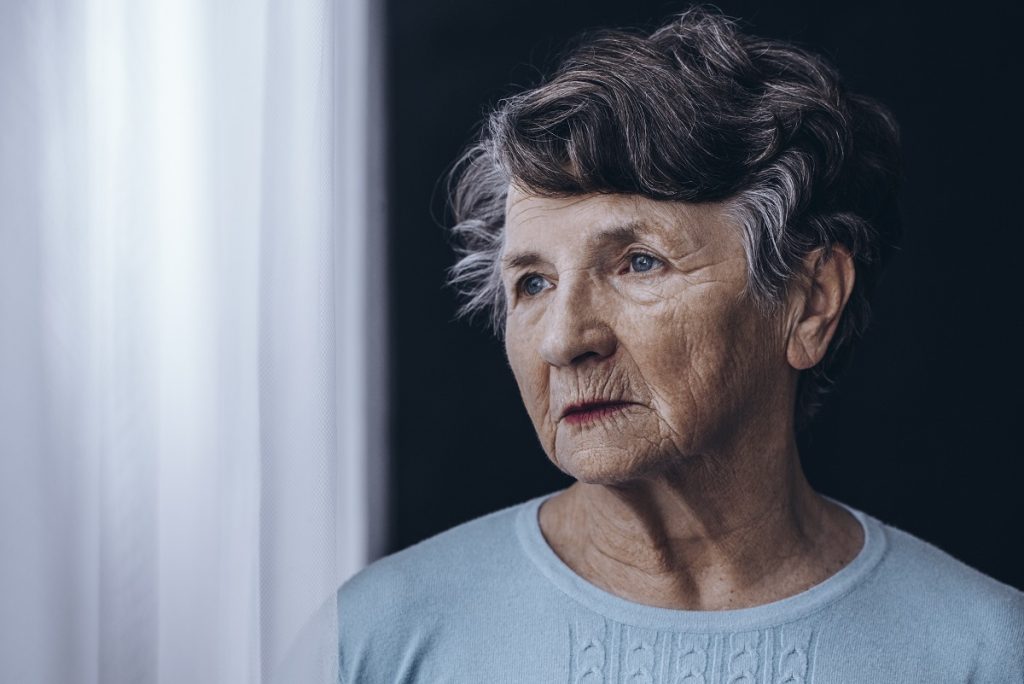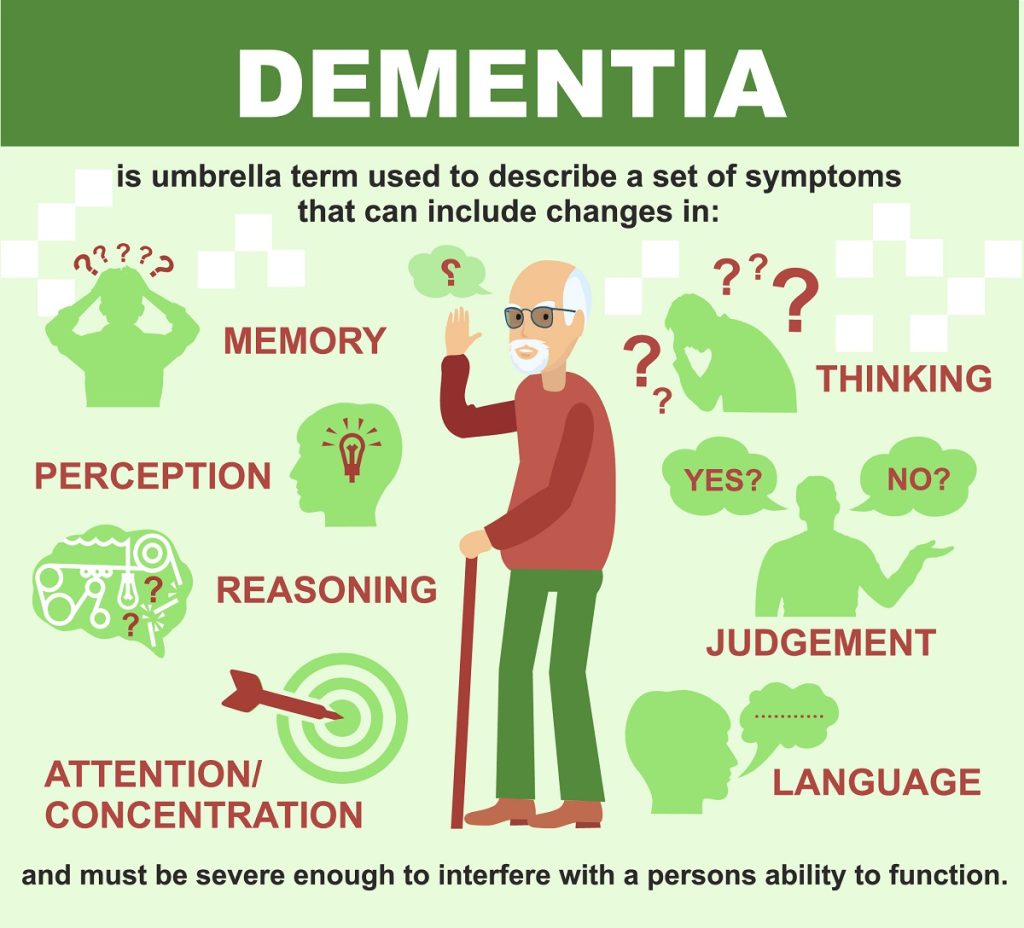Seniors often exhibit behavior and personality changes that are no cause for concern. When the changes are dramatic or suddenly become worse, caregivers should explore whether the changes might be due to medication side effects, hearing or vision issues, depression, or the onset of dementia.
If you are taking care of your aging parents or other seniors, dealing with their behavioral changes can often be challenging. Family members and caregivers must understand the what, why, and how of such personality changes to provide the best care possible for their elderly loved ones.
What Causes Elderly Behavior Changes?
Changes in the physical body are not only ones that characterize aging. Several personality and behavioral changes also become evident as people grow older.
You may find that your aging loved ones often get more irritable, depressed, forgetful, or even suspicious. You may also notice them losing their interest in life in general.
Research suggests that older adults tend to have different personality traits than younger ones. It can be because of degenerative disorders, certain medications, poor sleep, or the sadness of knowing that their health is constantly declining.
What Is The Most Common Cause Of Personality Change?
Personality changes can affect how they think, feel, and deal with their daily lives.
Negative experiences can commonly prompt such changes. If your loved one received devastating news or was involved in an accident, they may exhibit changes in their personality.
If their brain sustains an injury and a part of their brain gets damaged, expect some changes in their personality and cognitive decline.
These changes may also have an underlying mental illness, such as anxiety, panic attack, or bipolar disorder.

What Are The Six Major Old Age Problems That Could Lead to This?
The aging process can affect someone’s physical capacities and behavior. For caregivers of seniors and aging parents, here are six age-related issues that can lead to a personality change.
1. Sadness
Elder care experts note that loneliness in old age can be caused by declining health, social isolation, and loss of purpose.
When they feel prolonged sadness and develop depression, they can show shifts in their personality. Impulsiveness and compulsive behaviors are linked to depressive disorders.

2. Unresolved concerns and conflicts
Sometimes, people grow old without having the chance (or the will) to fix any unresolved issues. Frustrations and regrets about these concerns can manifest as behavioral changes.
3. Vision and hearing issues
The sense of sight and hearing are two vital senses that people may lose over the years. Older people may change their behavior to hide these issues out of embarrassment. Their reaction to visual and aural hallucinations may also lead to such changes.
It’s essential to have their eyes and ears regularly checked. Follow a physician’s advice for prescription glasses and hearing aids.
4. Stroke
The risk of health problems such as stroke increases with age. In fact, 70% of strokes happen once someone reaches the 65-year age mark. Per the National Stroke Association, two in 10 stroke survivors experience cognitive impairments.

5. Dementia
When elderly people develop brain disorders, they are likely to exhibit a number of behavioral symptoms, like moodiness and being apathetic. In some cases of Parkinson’s disease dementia, patients act impulsively and develop hoarding behaviors.
6. Medication side effects
A care manager or someone who works in care agencies knows that some medications adversely affect patients, especially older ones. Apart from physical pain, some prescription drugs can alter moods and behaviors.
What Causes Anger Outbursts In The Elderly?
Are you caring for an elderly parent? Be aware that behavioral changes aren’t unusual for people their age.
Around the world, family caregivers and care services providers attest to how older adults tend to exhibit aggressive behavior from time to time, including anger outbursts. According to research, mood disorders and mood swings are more prevalent among older people.
They may act out if they experience pain or physical discomfort or suffer from medication side effects like constipation. They may throw tantrums if they have difficulty seeing or hearing or have hallucinations.
Being in unfamiliar environments or large crowds can also trigger such outbursts. Boredom, fatigue, hunger, frustration, memory loss, and fear are some of the other culprits.
If you ask caregivers or healthcare providers, the general rule when handling these situations is not to engage. Keep calm and give them the space they need to soothe their emotions.
To identify if declining health problems (physical or mental) cause these temper tantrums, it is best to take them to their physician for a proper workup.

What Causes Depression In Elderly Individuals?
Depression is one of the most common personality changes observed among the elderly. About 6% of older adults have a diagnosable depressive condition.
Aging family members with so-called geriatric depression feel like their overall quality of life has declined. This mental health concern is usually caused by the following:
- Fear of dying
- Loneliness and social isolation
- Lack of a sense of purpose
- Recent life experiences (e.g., death of a loved one, financial hardships, divorce, discovery of a severe illness).
- History of family depression
Health issues such as stroke, cancer, diabetes, hypertension, and dementia can increase one’s likelihood of suffering from depression.
As a family or home caregiver, it’s crucial to provide support to aging adults with depressive symptoms. Help them increase their physical activity, guide them in learning a new hobby, and assist them in eating a well-balanced diet.
If there are antidepressants prescribed to them, also ensure that they’re taking the proper doses at the right time.
What Can Cause A Sudden Change In Personality?
The majority of changes in personality traits gradually happen, but some do suddenly take place.
Did they suddenly lose interest in family and friends or past hobbies? Do they often lash out and use excessive curse words? Are they now unable to make sound decisions?
The common causes for these personality shifts are inadequate sleep, hunger, digestive issues, and urinary tract infection or UTI, especially among older people.
If someone undergoes a traumatic event, gets injured, or develops an illness, they may also exhibit a sudden personality change. The same can happen due to an adverse reaction to a new medication.
To help them, you must learn to identify their triggers and seek professional advice.

What Is A Common Symptom Of Dementia In The Elderly?
In the United States, over 7 million elderly people (65 years old and above) had dementia in 2020. This figure is projected to reach 12 million in two decades.
Dementia affects various areas of the brain. Primarily, it affects how brain cells communicate, affecting how a patient thinks and behaves.
If you have loved ones suffering from it, one of the most common symptoms of dementia you’ll see is memory lapses.
They may forget to pay bills or go to their appointments. Or they may be unable to remember where they hid their purse and other belongings. In worse cases, they may not remember where they are or who the people around them are.
Other symptoms include:
- Loss of focus and concentration
- Poor reasoning and judgment
- Difficulty reading, writing, and communicating their thoughts
- Poor visual perception
- Confusion and disorientation
- Psychological changes (e.g., depression, anxiety, hallucinations)
What Is The Difference Between Dementia And Alzheimer’s?
When discussing behavioral changes in aging adults, terms like dementia and Alzheimer’s are often mentioned and used interchangeably.
Dementia is an umbrella term for brain disorders that lead to cognitive impairments — it’s not a specific disease. Common symptoms are those discussed above.
Alzheimer’s disease, on the other hand, is one of the several brain disorders that fall under dementia. It makes up about 60 to 80% of dementia cases and is characterized by worsening dementia and behavioral symptoms.
Diagnosing diseases like this is important so that the proper treatment and care plans will be designed and implemented.

